Photos from the past that are worth seeing
Categories: History
By Pictolic https://pictolic.com/article/photos-from-the-past-that-are-worth-seeing1.htmlThe phrase "a picture instead of a thousand words" was coined by the American newspaper editor Arthur Brisbane in 1911. These simple words are perfectly suited to many aspects of our life, but especially to historical photographs. Sometimes one simple snapshot can tell much more about the past than long articles and chronicles.
All photos of this issue tell their stories about famous people or events of the past years. Once these pictures were taken to capture the present, and now they are messengers of the past. Many photos become iconic years later when the public understands their importance and historical context. Perhaps photographs of wars, poverty, the struggle for freedom and small miracles from the past will help us learn something in the future?
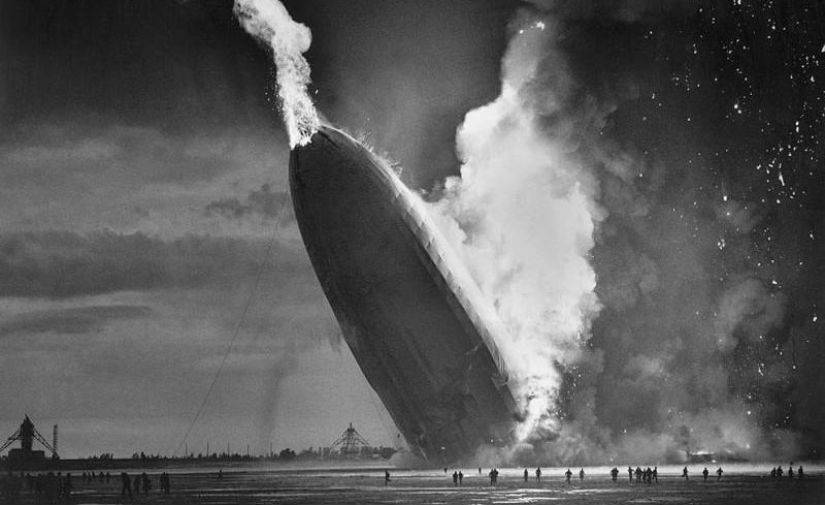
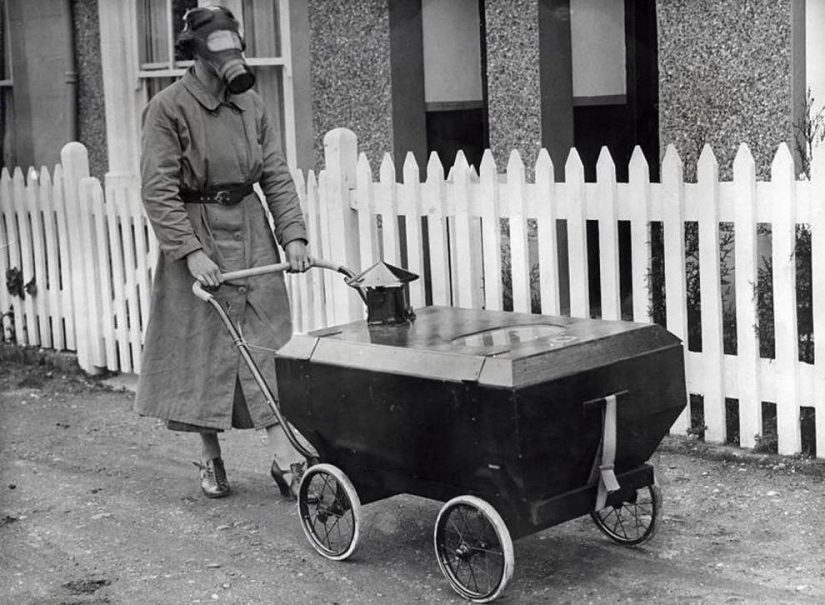
A woman with a wheelchair equipped against gas attacks. England, 1938.
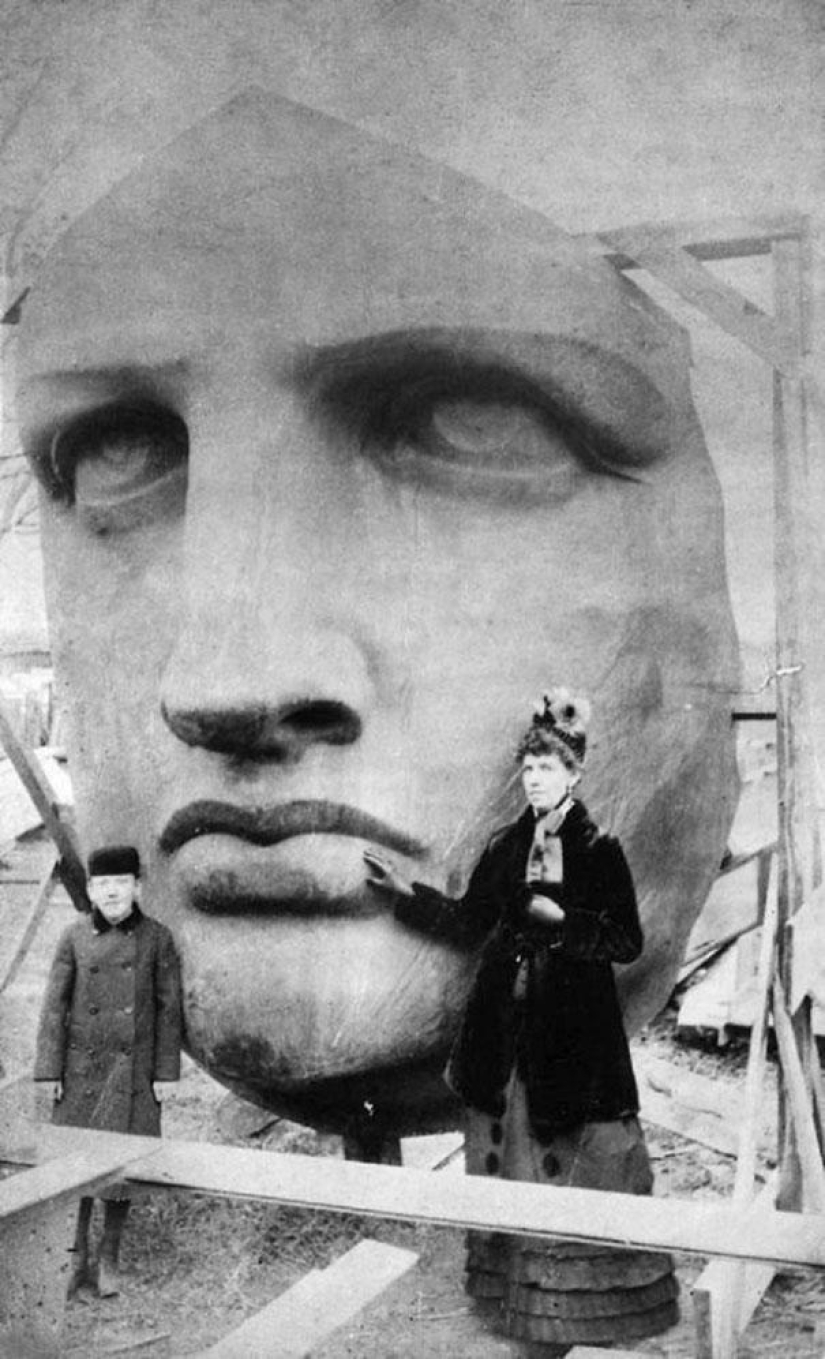
Unpacking the head of the Statue of Liberty, 1885.
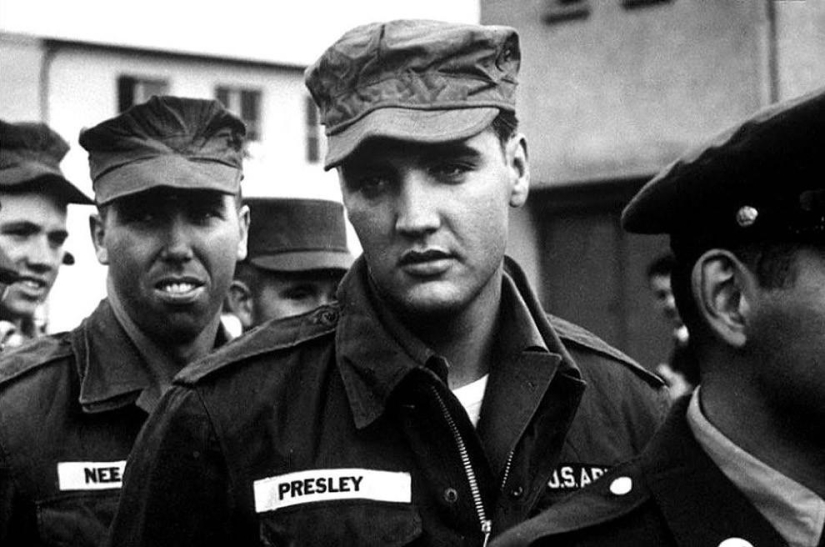
Elvis Presley in the army, 1958.
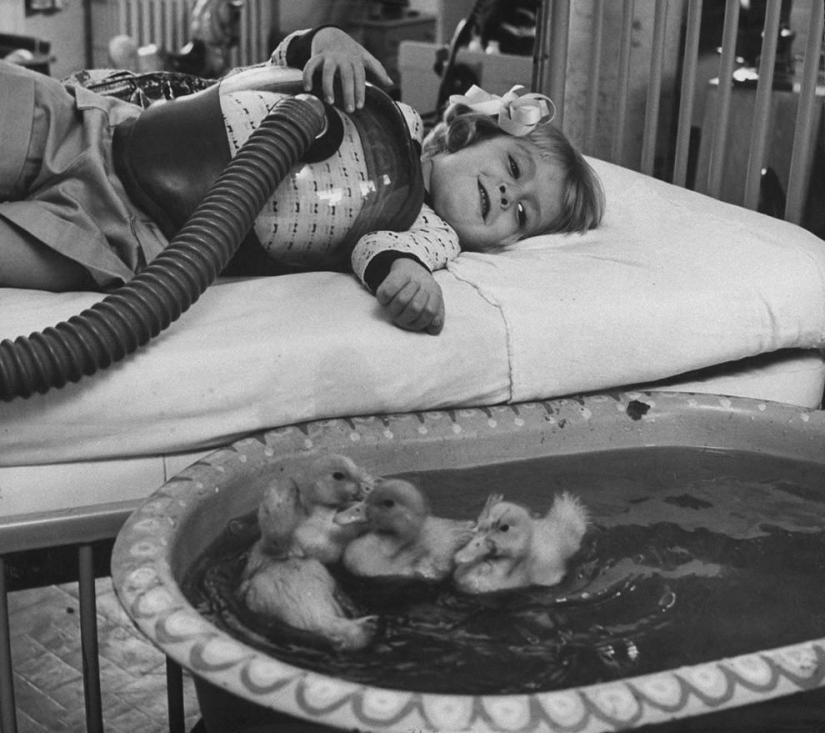
Animals as a means of child therapy, 1956.
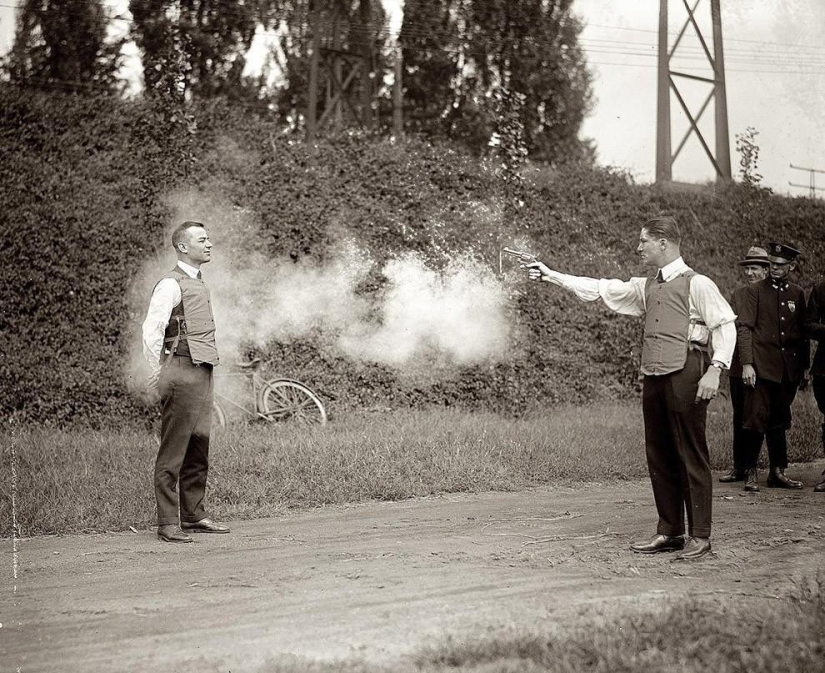
Testing of new bulletproof vests, 1923.
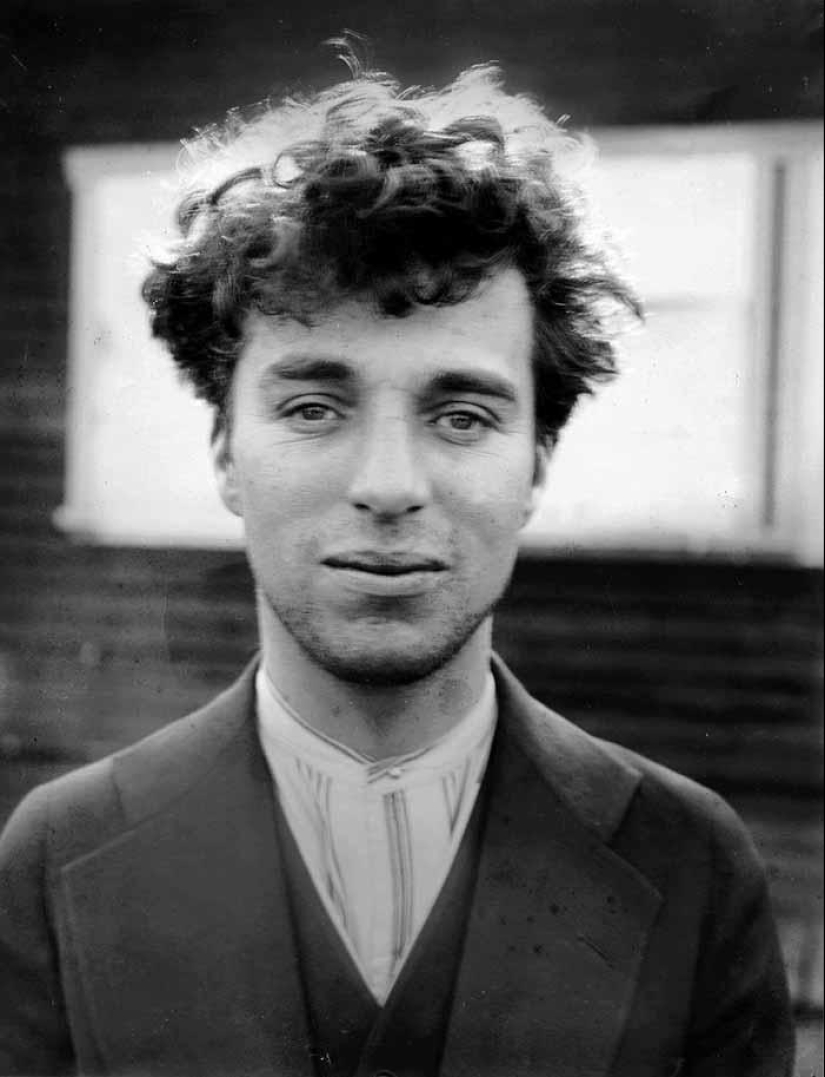
Charlie Chaplin at the age of 27, 1916.
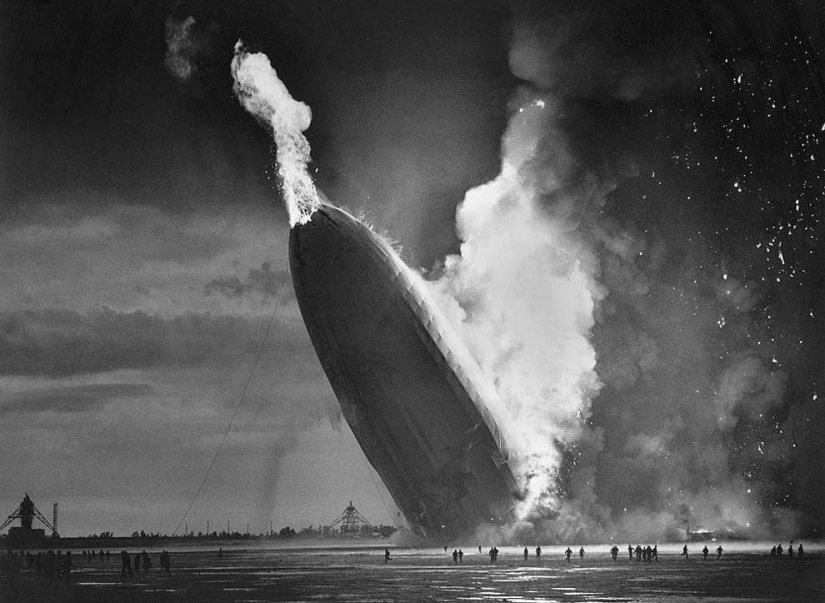
The crash of the airship "Hindenburg", May 6, 1937.
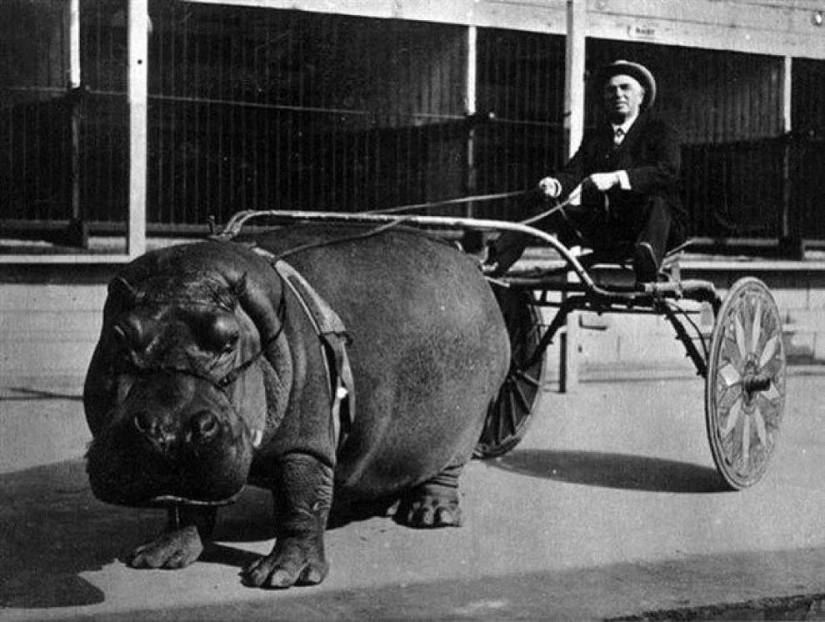
Circus hippopotamus harnessed to a cart, 1924.
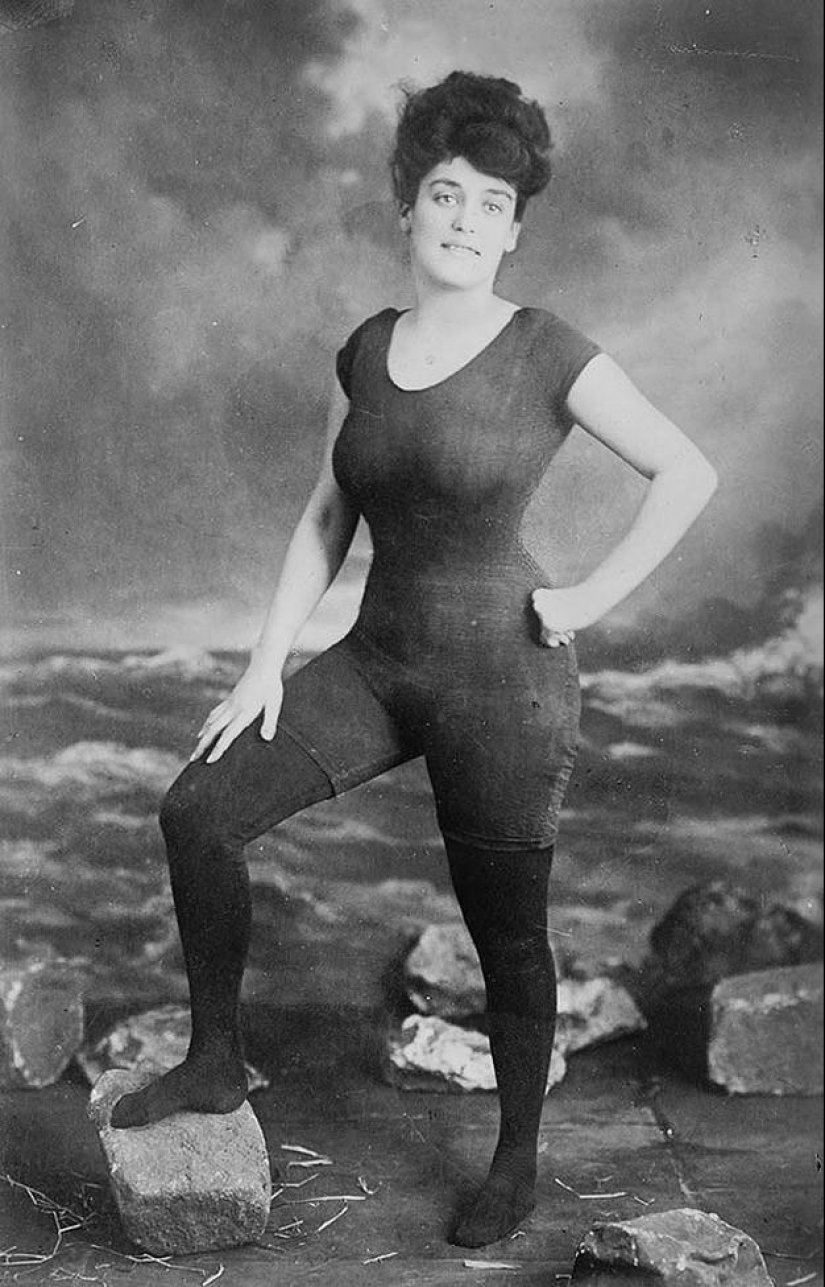
Annette Kellerman's campaign for the right of women to wear a tight-fitting swimsuit in 1907. Then she was arrested for obscenity.
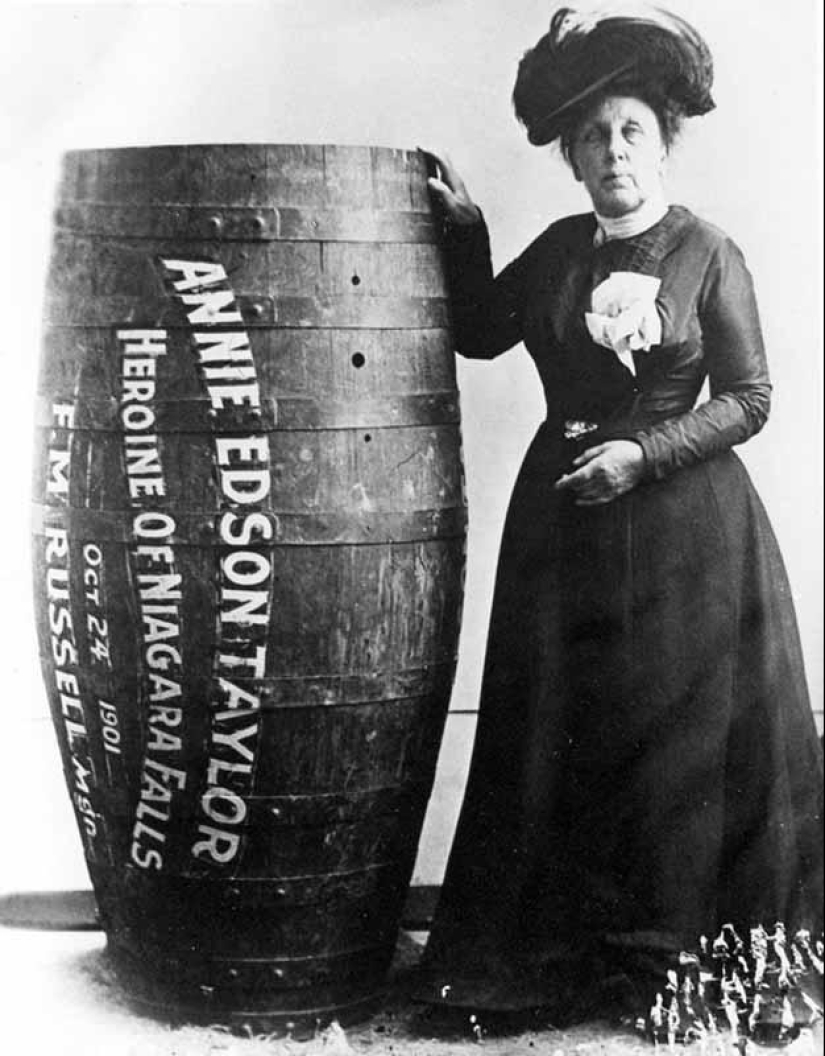
Annie Edson Taylor is the first survivor to overcome Niagara Falls in a barrel. She did it in 1901 (she was 63 years old!).
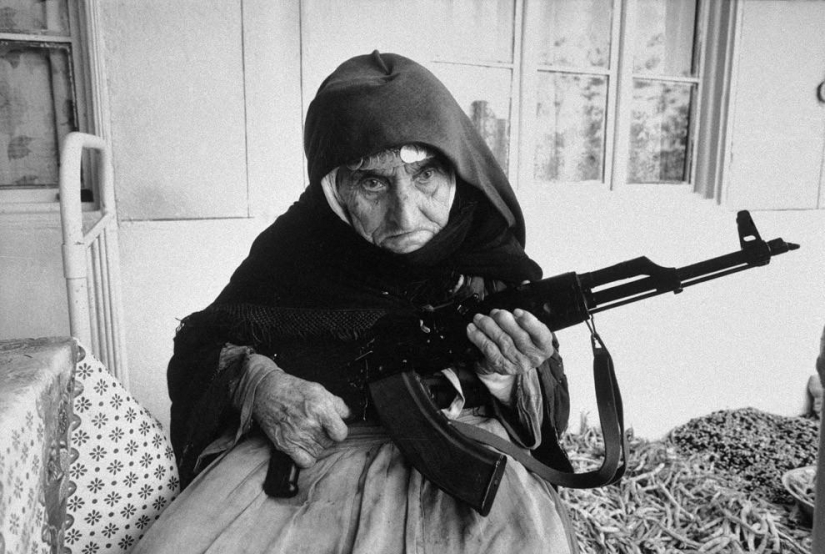
106-year-old Armenian woman guards the house, 1990.
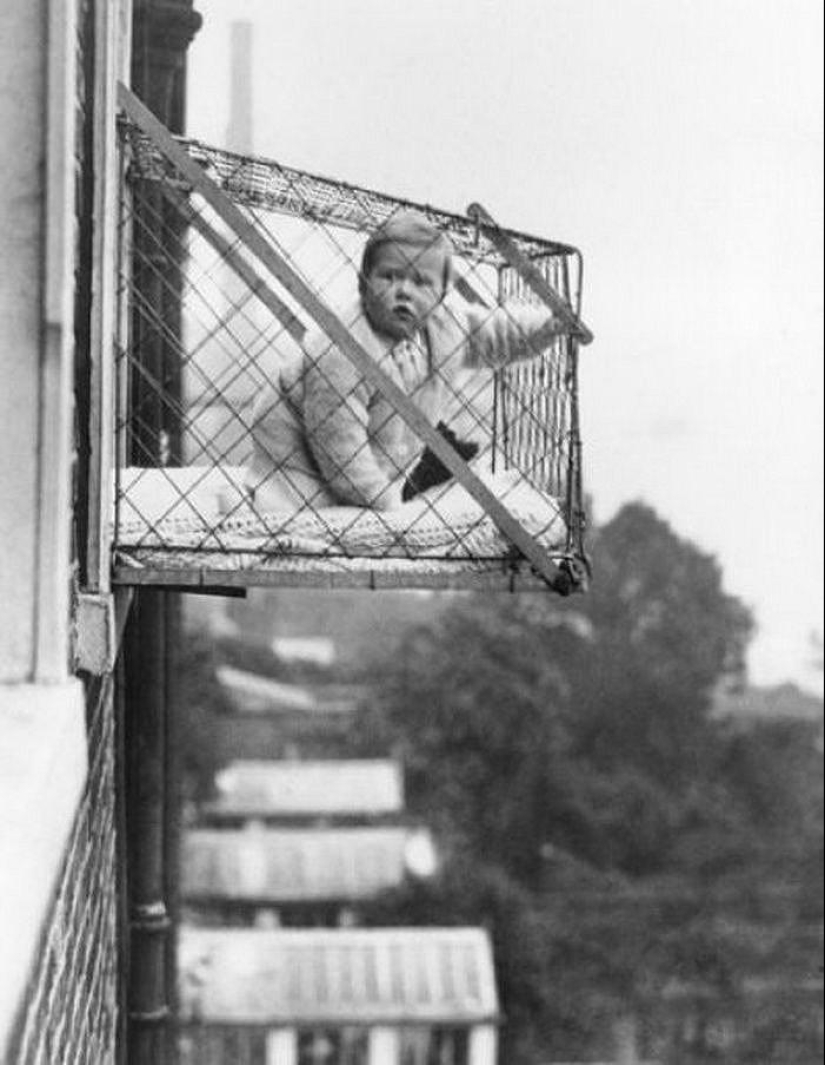
Children's cages - so that a child living in an apartment gets enough sunlight and fresh air. Around 1937.
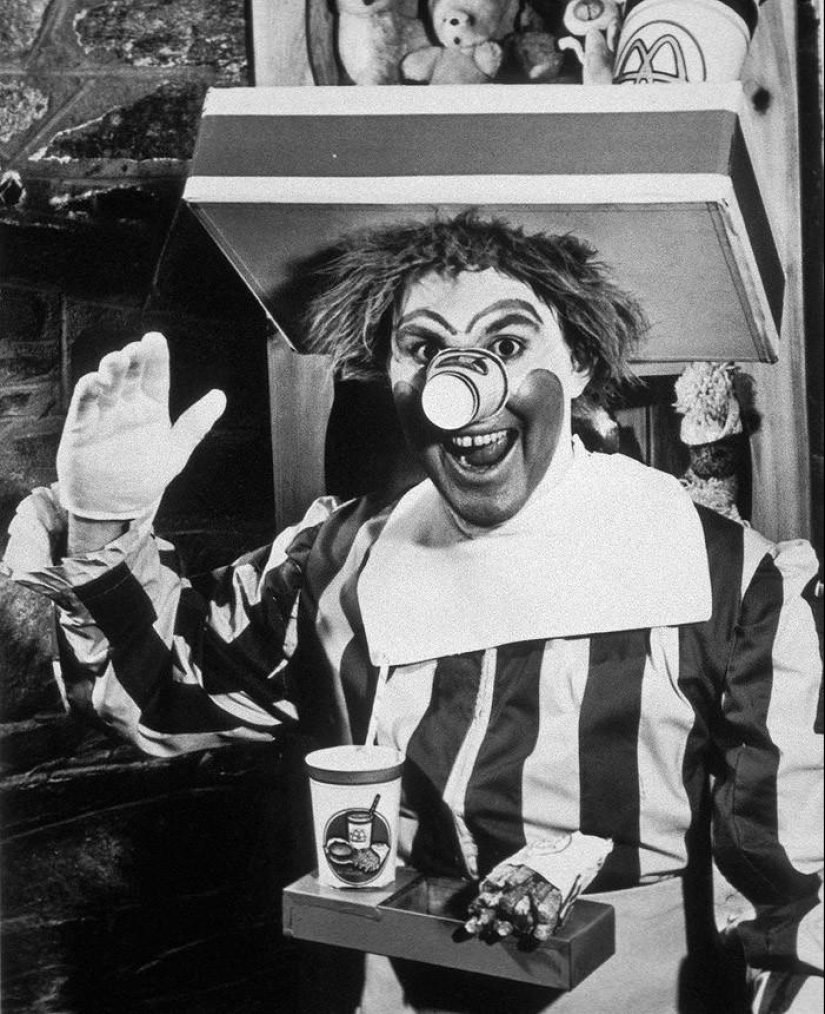
The first Ronald McDonald, 1963.
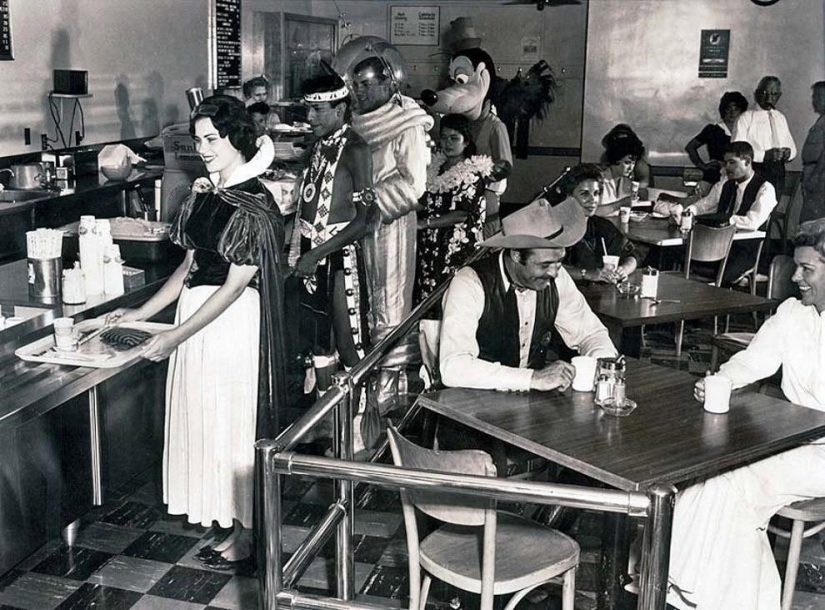
Disneyland Workers' Cafeteria, 1961.
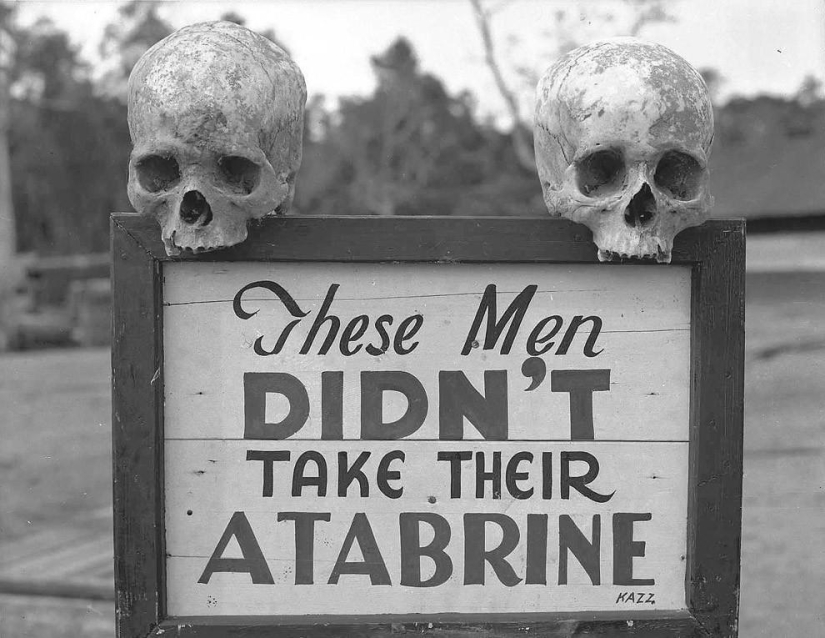
An advertisement for atebrine, an anti-malaria drug, in Papua New Guinea during World War II. The inscription on the sign: "These guys did not take their atebrin."
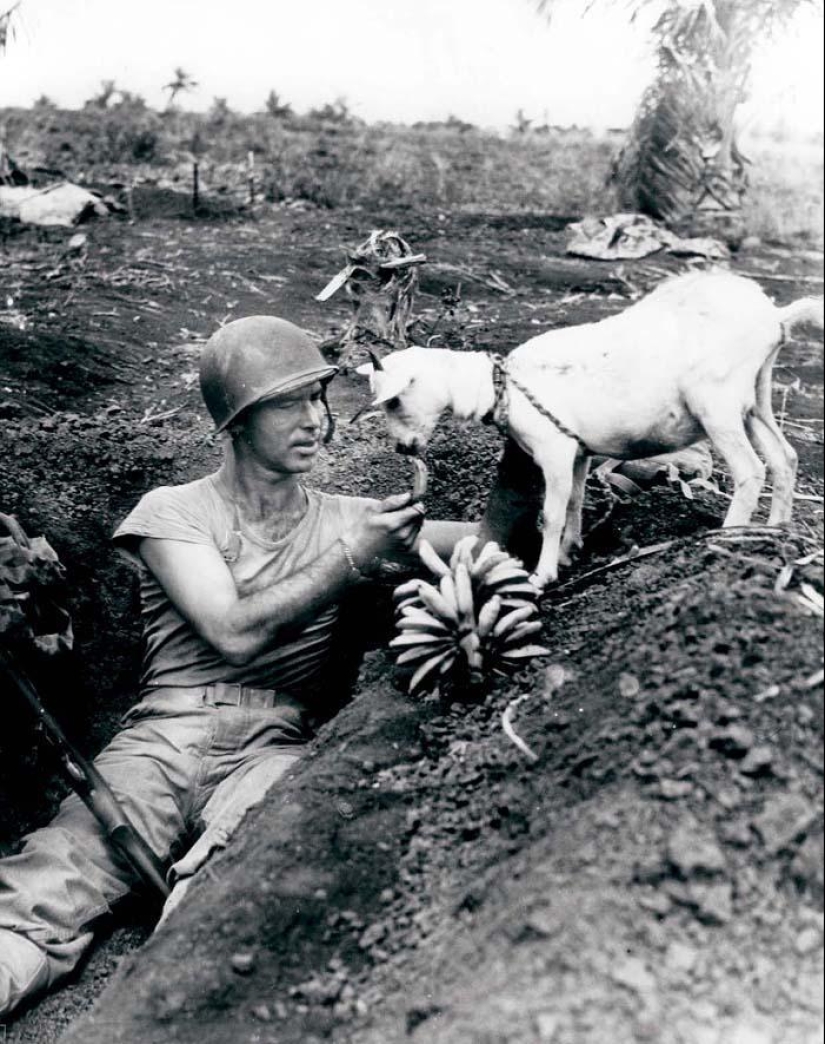
A soldier shares a banana with a goat during the war on Saipan, circa 1944.

A girl with a doll on the ruins of her house after the bombing of London in 1940.

The construction of the Berlin Wall, 1961.
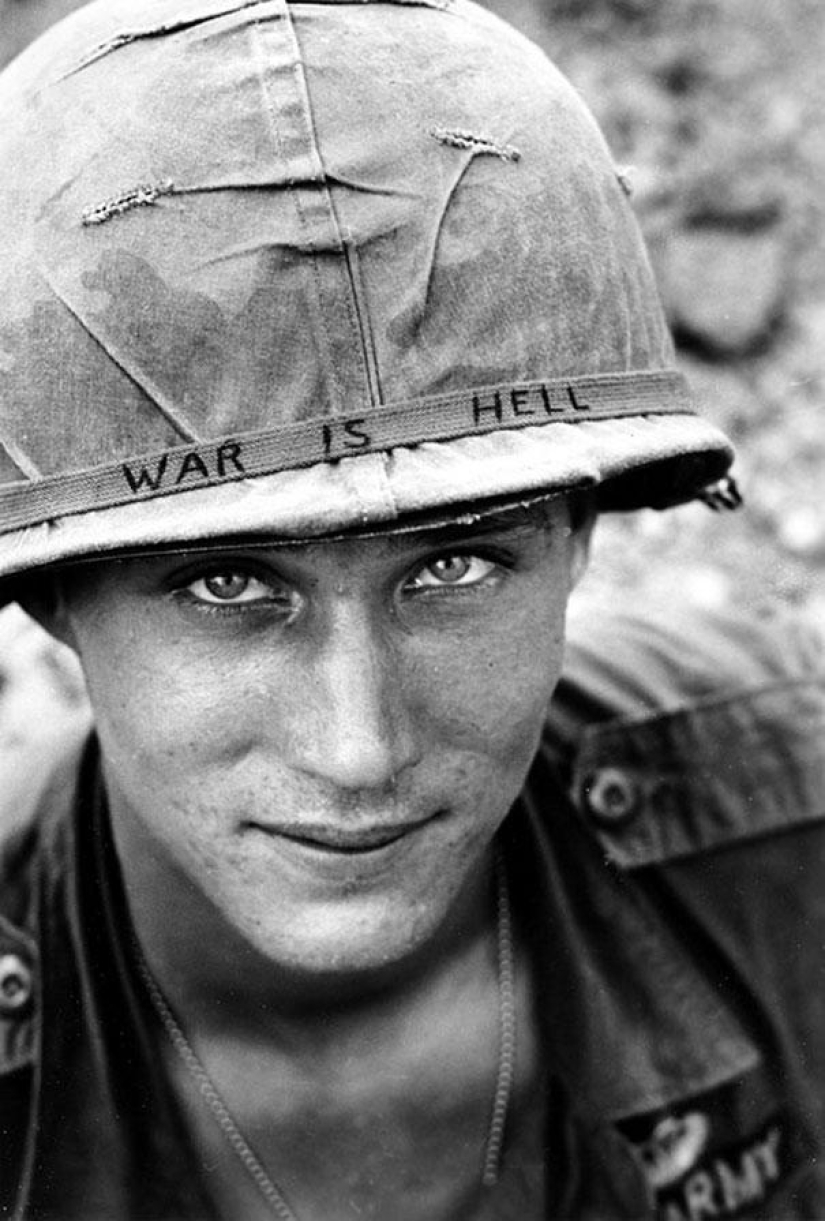
Unknown soldier in Vietnam, 1965. "War is hell."

A bookstore in London, destroyed by bombing, 1940.
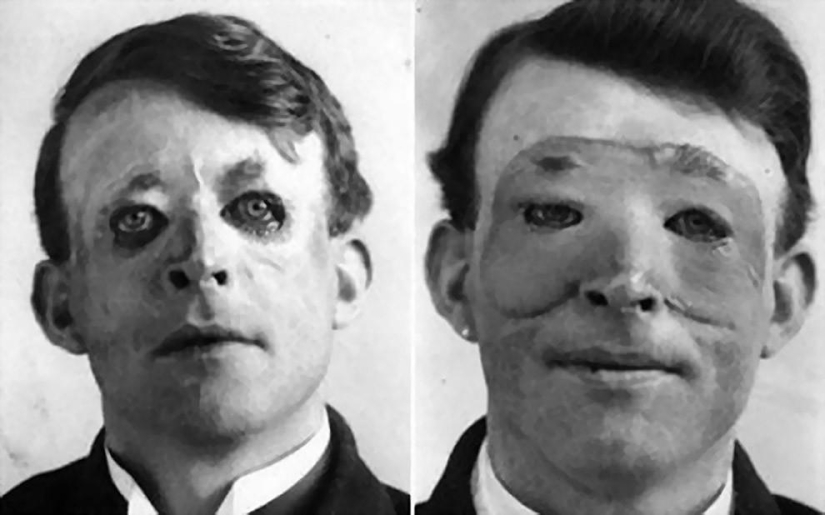
Walter Io is one of the first to have plastic surgery and skin grafting, 1917.
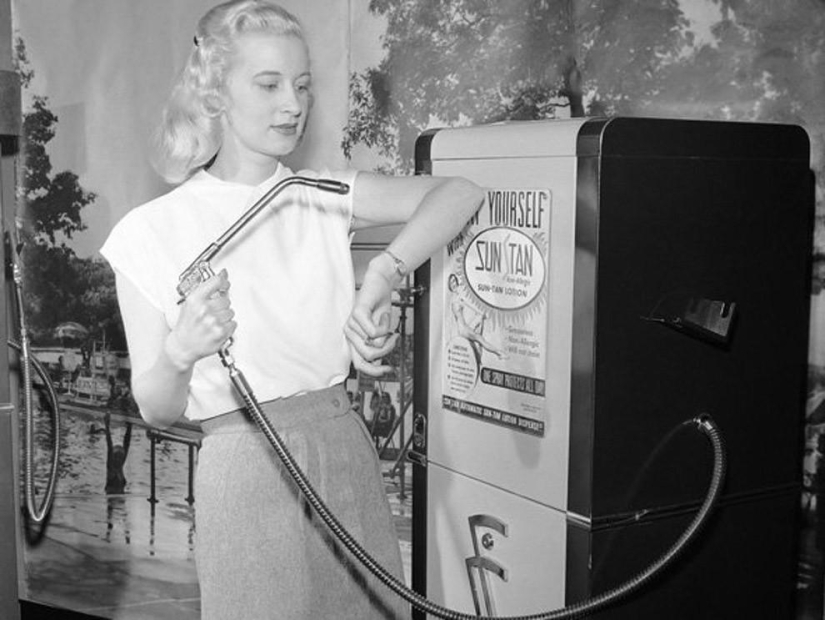
Automatic tanning machine, 1949.
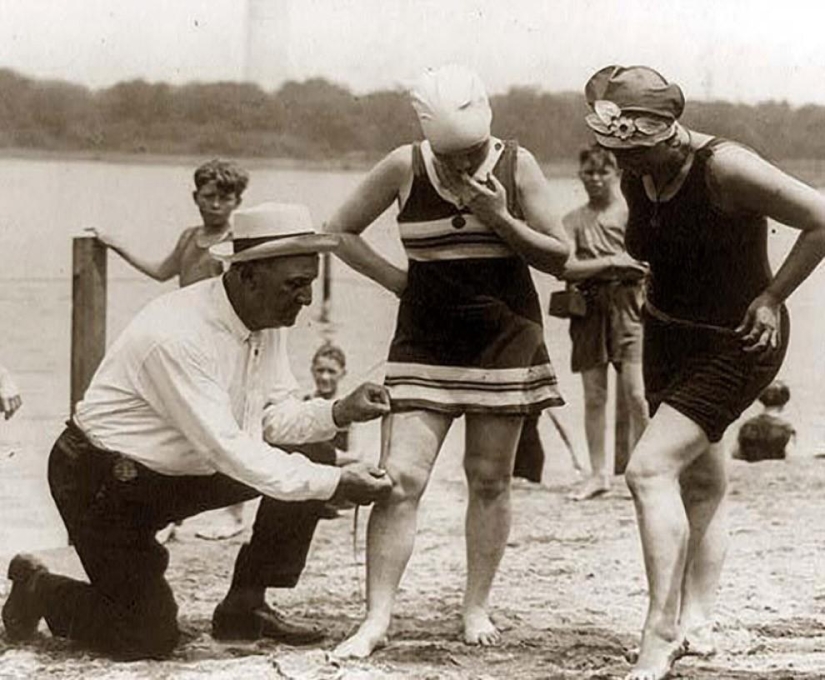
Measuring the length of a swimsuit — if it is too short, a woman will be fined, 1920s.
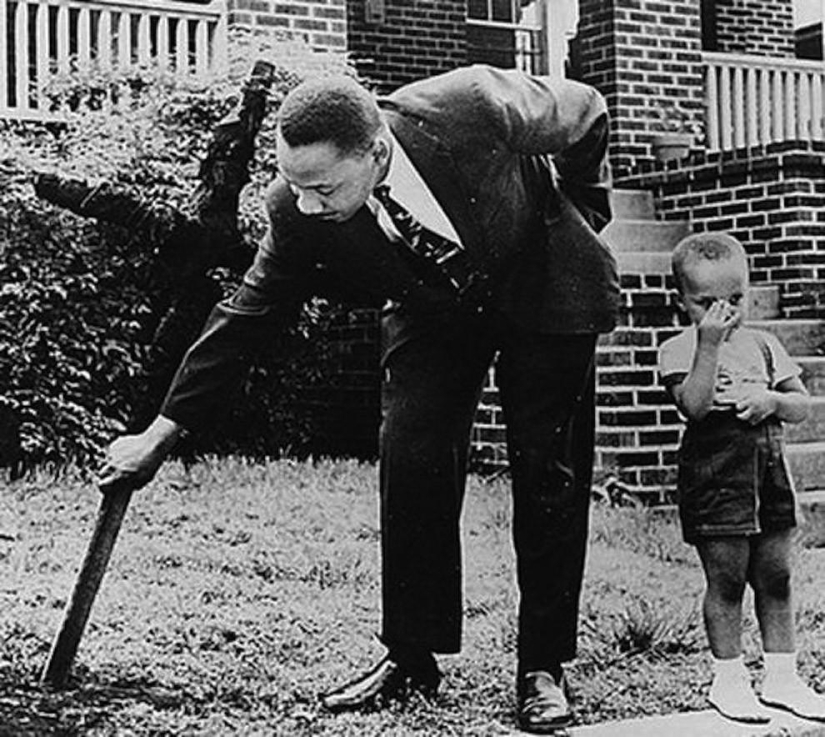
Martin Luther King and his son remove a burnt cross from the lawn of their house, 1960.
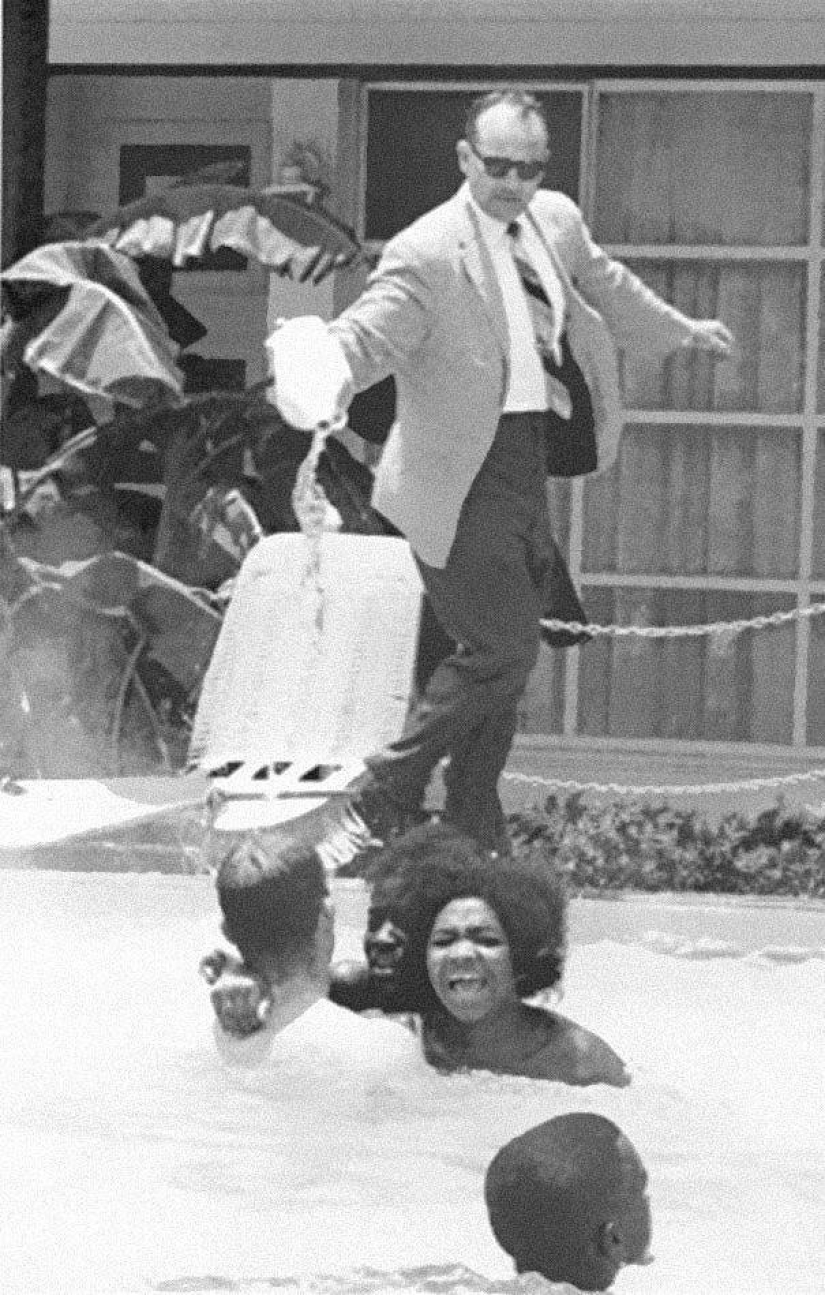
The owner of the hotel pours acid into the pool in which black people swim, circa 1964.
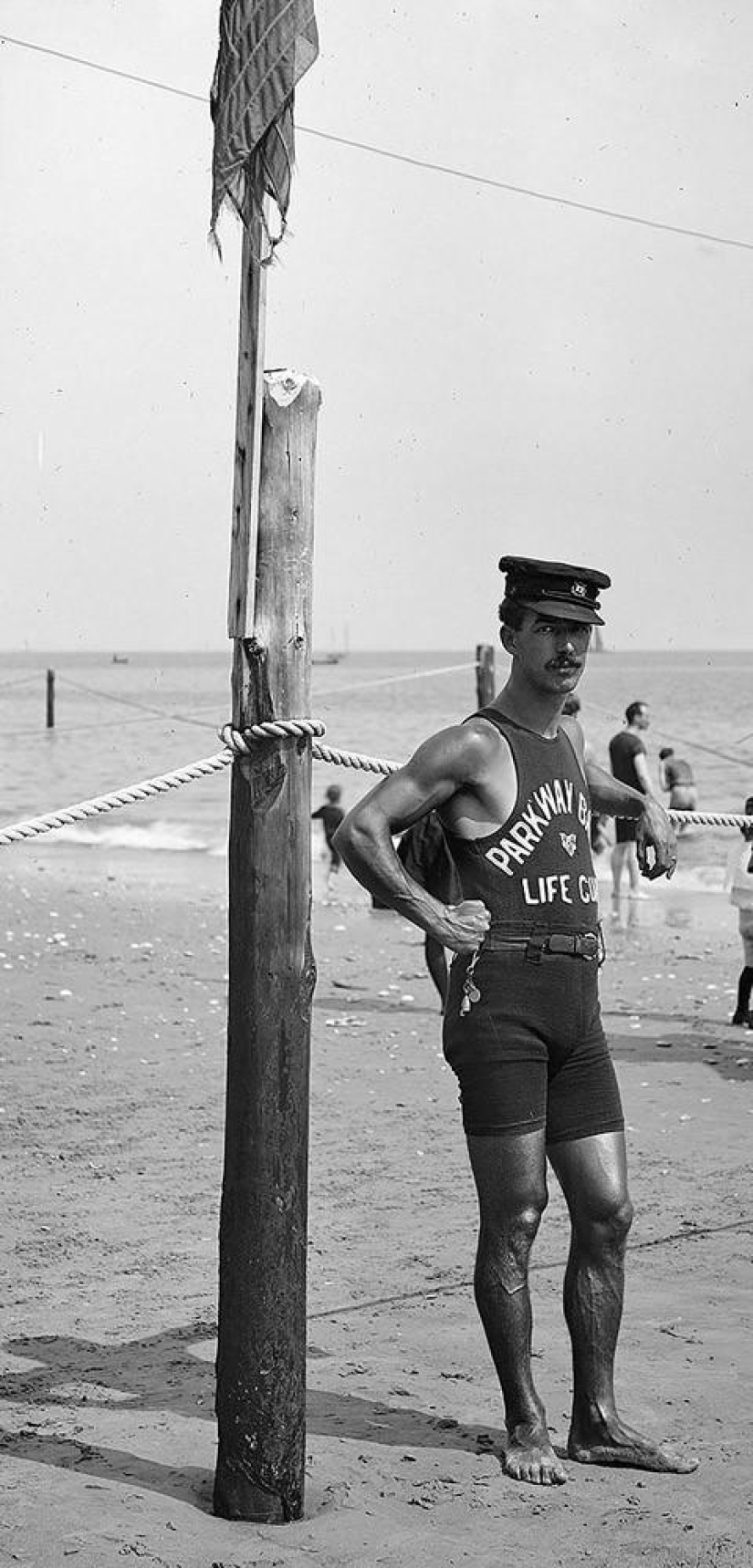
Lifeguard on the beach, 1920s.
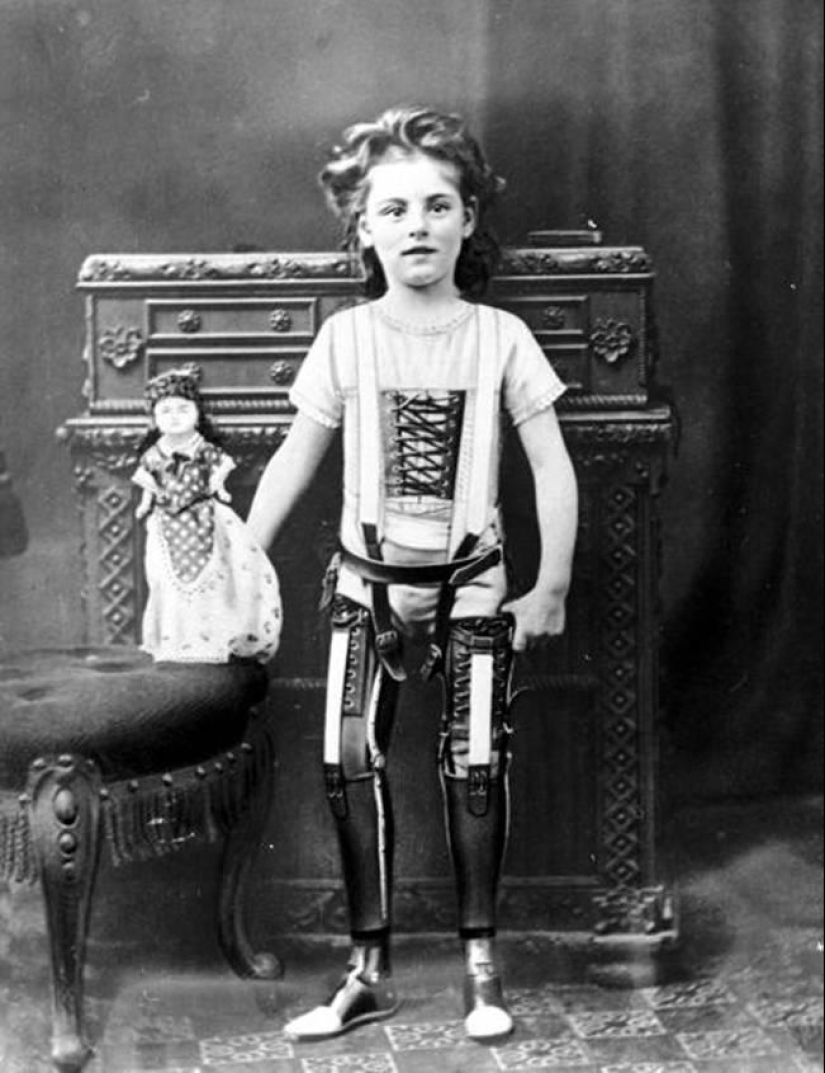
Prostheses, Great Britain, ca. 1890.
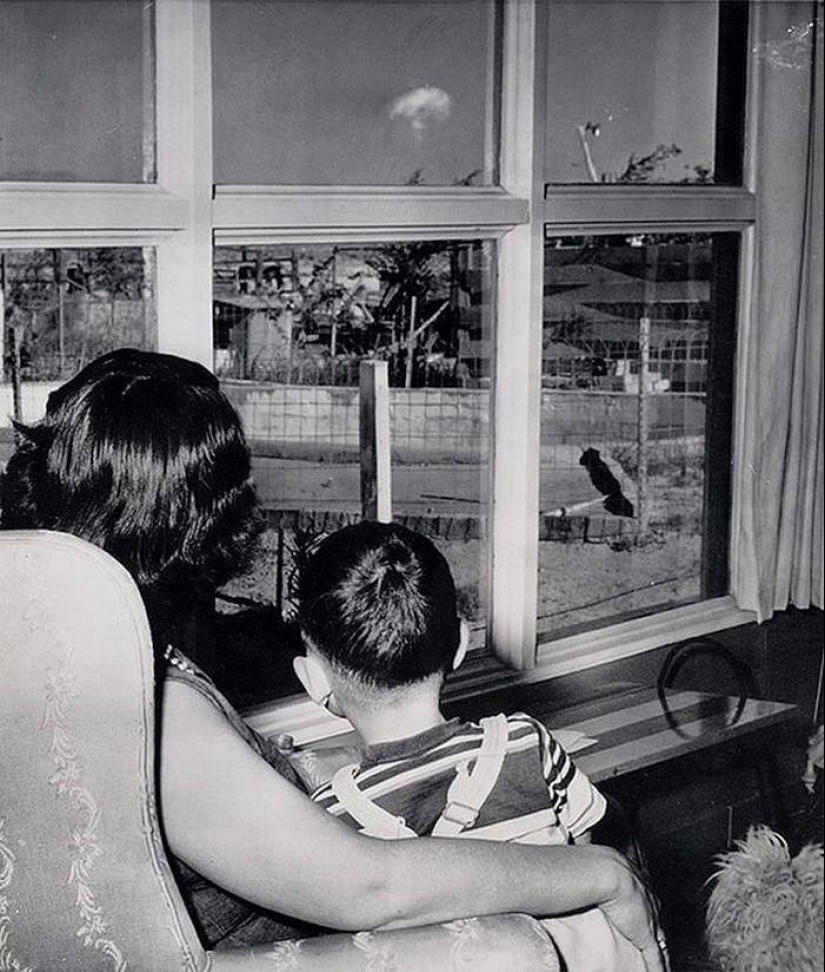
A mother and son look at a mushroom cloud after a nuclear weapons test in Las Vegas, 1953.

The mother hides her face in shame: she has just put her children up for sale.
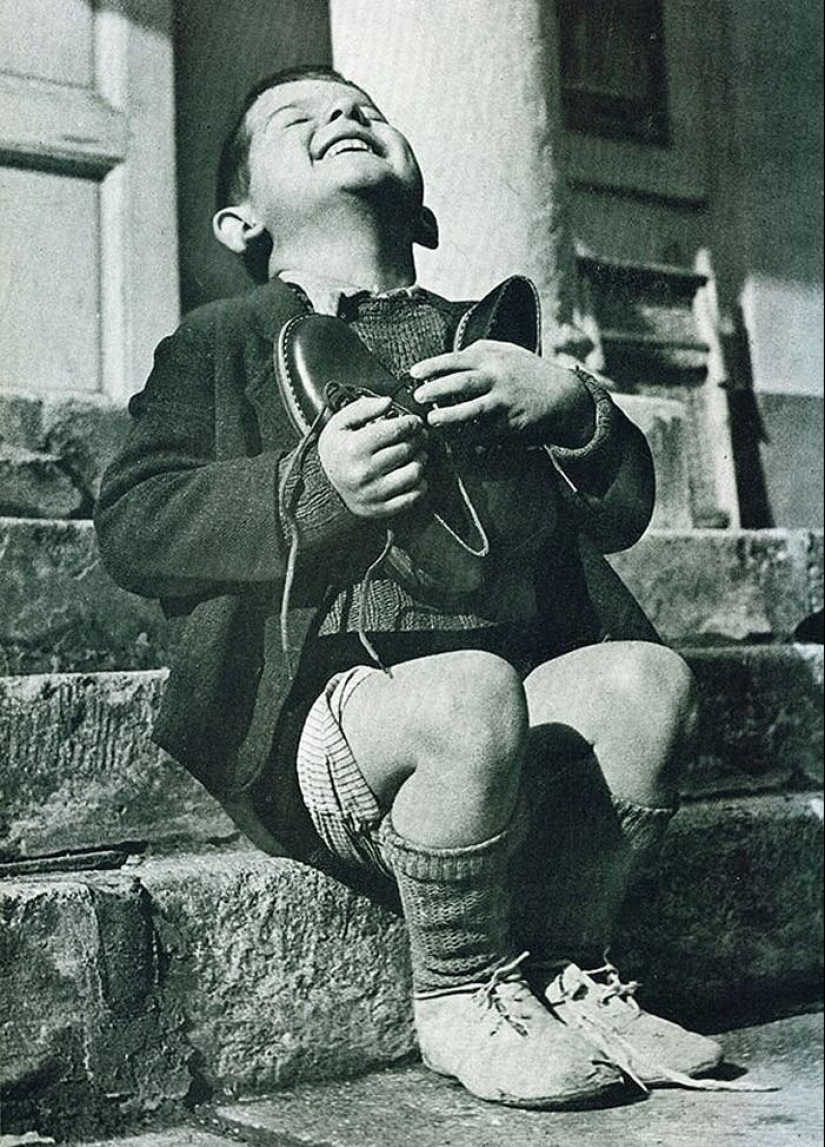
An Austrian boy has just received a gift of new shoes. The picture was taken during the Second World War.
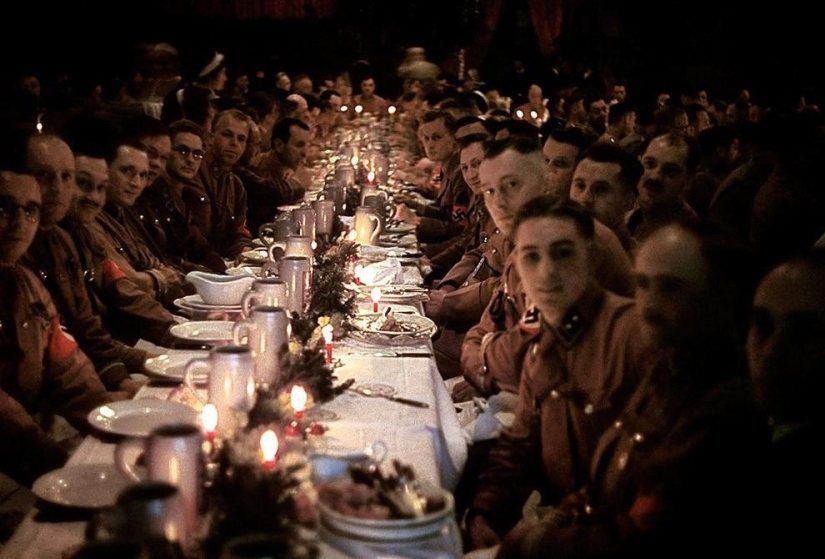
Officers and cadets from Hitler's army celebrate Christmas, 1941.
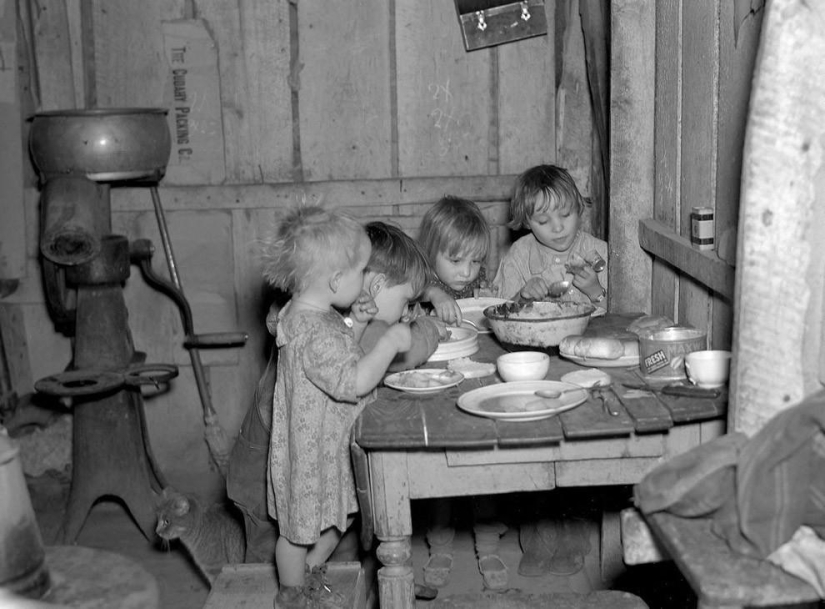
Christmas Dinner during the Great Depression: turnips and cabbage.
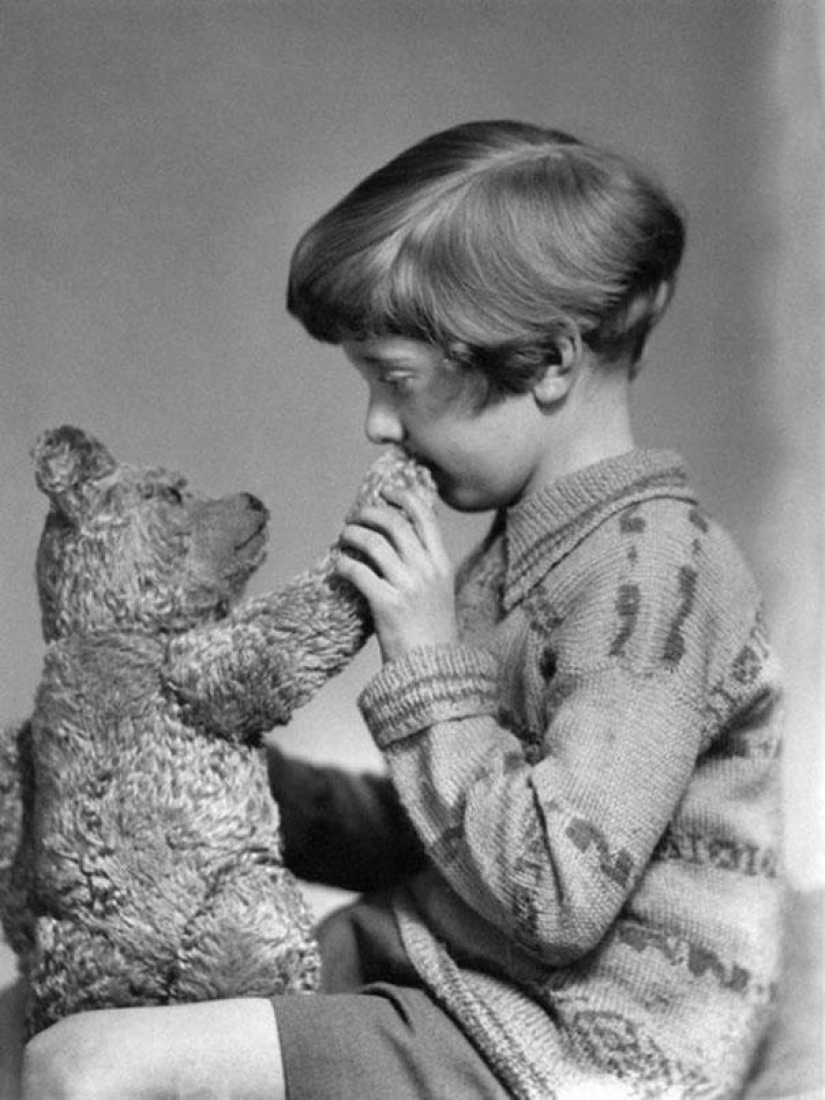
The real Winnie the Pooh and Christopher Robin, circa 1927.
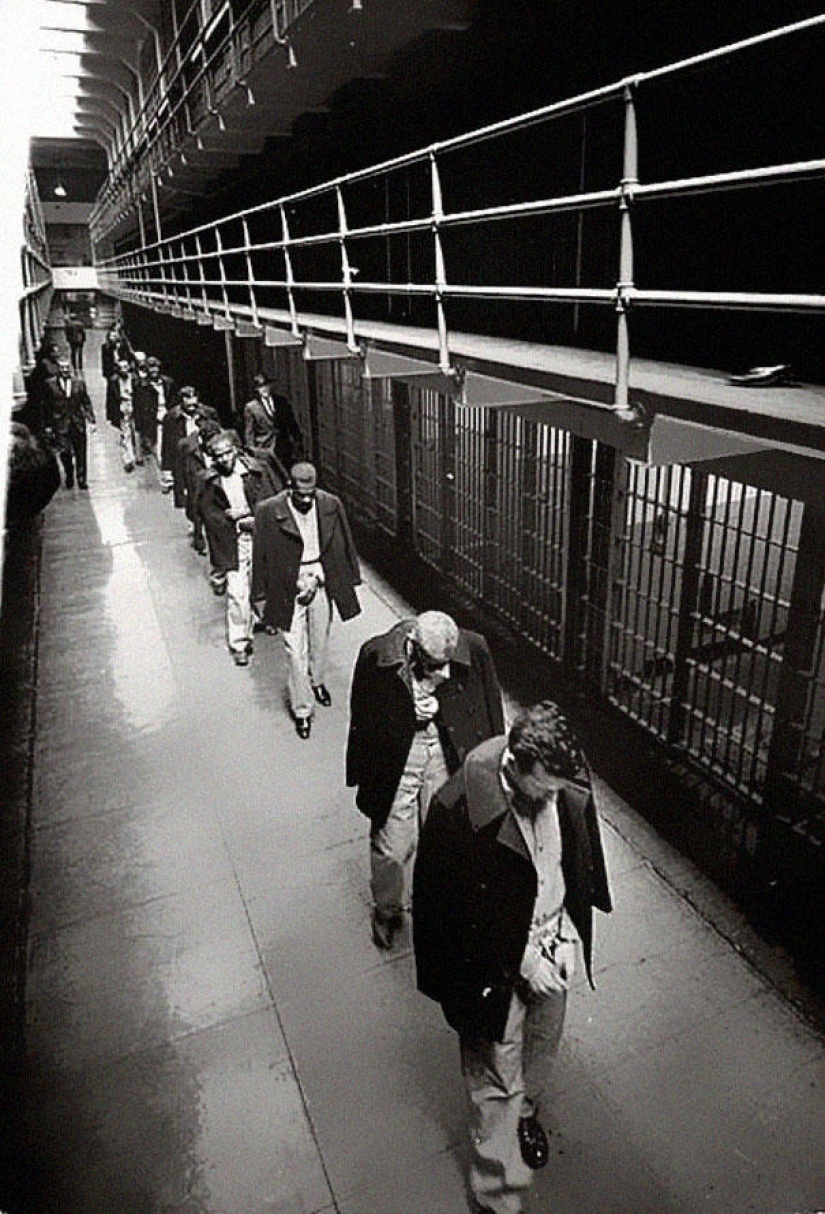
The last prisoners leave Alcatraz, 1963.
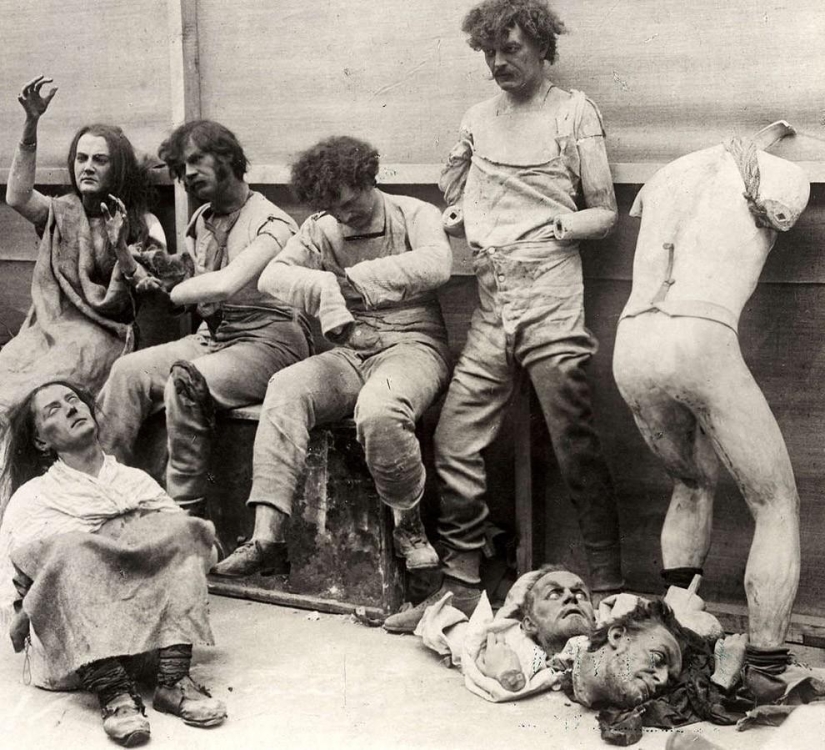
Melted and damaged figures after a fire at Madame Tussauds Museum in London, 1930.

A chimpanzee after a successful flight into space, 1961.
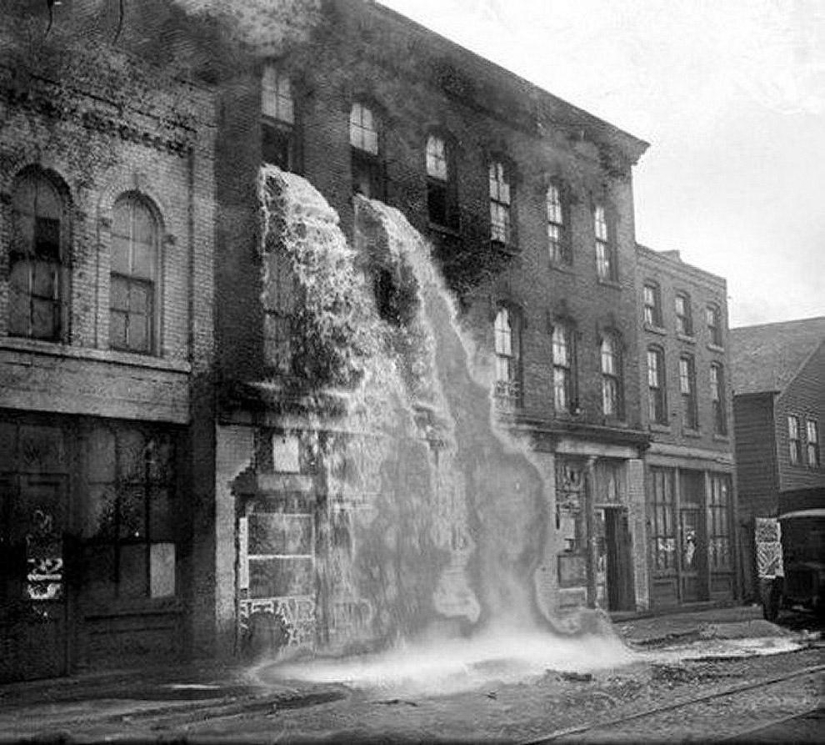
Pouring illegal alcohol during prohibition in Detroit, 1929.
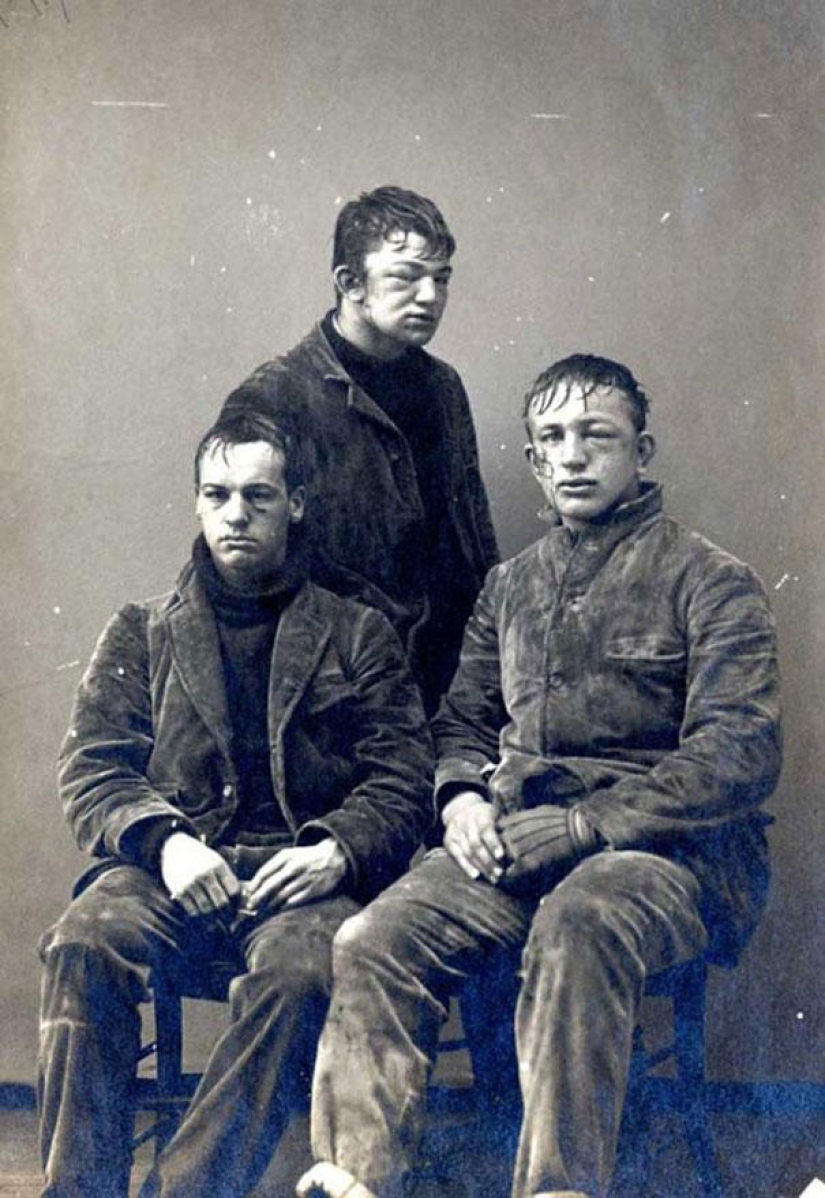
Princeton University students after a snowball fight between freshmen and sophomores in 1893.
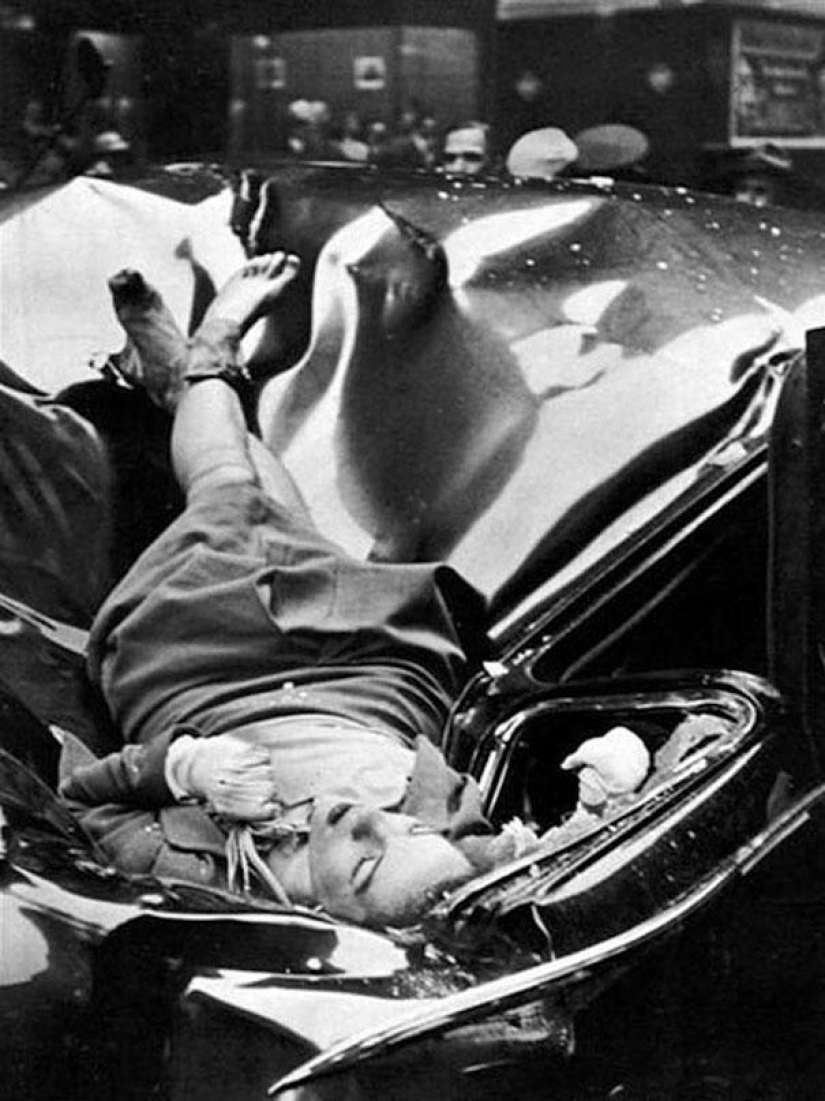
Suicide in style: 23-year-old Evelyn McHale jumped from the 83rd floor of the Empire State Building and landed on the limousine of a UN employee, 1947.
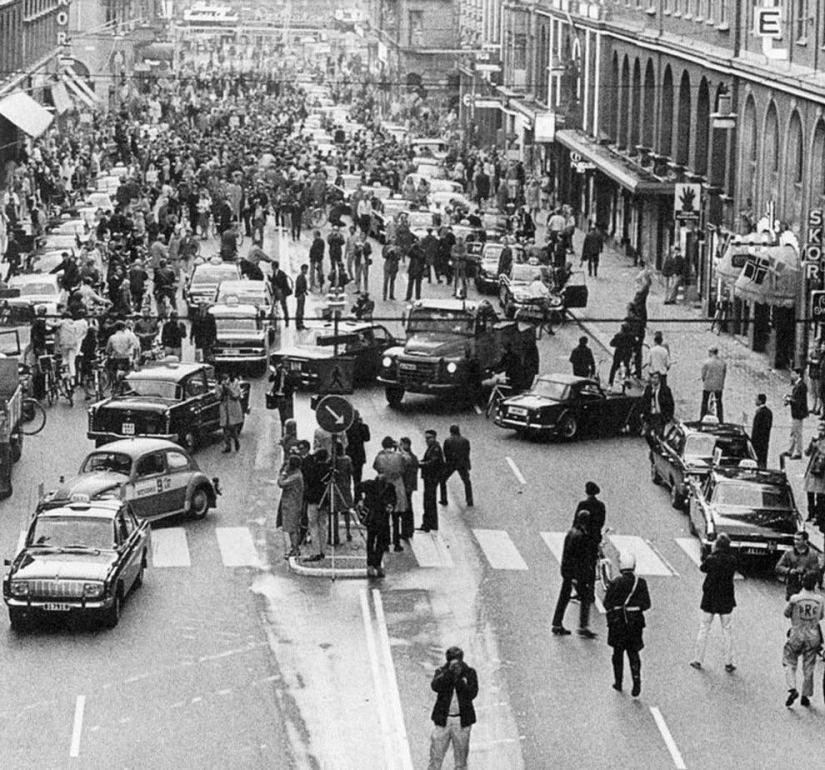
The first morning after Sweden switched from left-hand traffic to right-hand traffic, 1967.
Recent articles

It's high time to admit that this whole hipster idea has gone too far. The concept has become so popular that even restaurants have ...

There is a perception that people only use 10% of their brain potential. But the heroes of our review, apparently, found a way to ...

New Year's is a time to surprise and delight loved ones not only with gifts but also with a unique presentation of the holiday ...